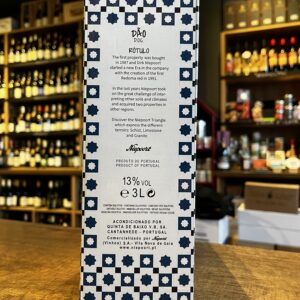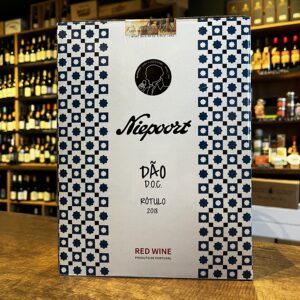Alfrocheiro Origin
The Alfrocheiro red grape variety appeared in the last century, full of mystery since its origin is unknown, not to mention that today it takes place for only 3% of the total territory of vineyards planted in Portugal. Considered a high quality grape among winemakers, it was in the Dão region that it found its natural territory.
-
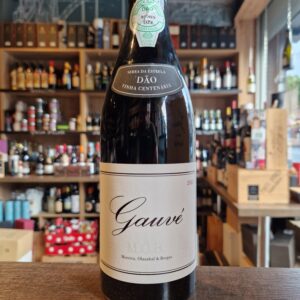 This project was born from the will of three winemakers, Jorge Moreira, Francisco Olazabal and Jorge Serôdio Borges, to make a wine together. The chosen region was the Dão, a region for which there is a common admiration that was born in the tasting of older wines, from the 60s and 70s that surprise for their elegance and freshness. The identity and complexity of these wines is indeed remarkable and serves as an inspiration for MOB wines.
This project was born from the will of three winemakers, Jorge Moreira, Francisco Olazabal and Jorge Serôdio Borges, to make a wine together. The chosen region was the Dão, a region for which there is a common admiration that was born in the tasting of older wines, from the 60s and 70s that surprise for their elegance and freshness. The identity and complexity of these wines is indeed remarkable and serves as an inspiration for MOB wines. -
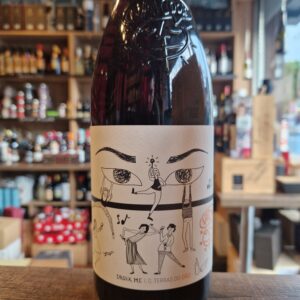 Nat Cool is an innovative, naturally “cool and funky” concept initiated by Niepoort in the Vinho Verde wine region. The movement later expanded into Bairrada and the Douro Valley and is now represented in various Portuguese as well as international wine regions. Nat Cool is not just about producing low-intervention wines – it embodies a movement uniting many different producers striving towards a shared goal of crafting uncomplicated, light and easy-to-drink wines. In 2020, the Nat Cool “family” grew, with its foray into Portugal’s Dão region. It is here, on the slopes of the Serra da Estrela Mountain Range that the DrinkMe Nat Cool is created and where we explore the region’s potential for elegant, fresh and straight-forward wines. Pair it with Light and simple dishes as well as comfort food
Nat Cool is an innovative, naturally “cool and funky” concept initiated by Niepoort in the Vinho Verde wine region. The movement later expanded into Bairrada and the Douro Valley and is now represented in various Portuguese as well as international wine regions. Nat Cool is not just about producing low-intervention wines – it embodies a movement uniting many different producers striving towards a shared goal of crafting uncomplicated, light and easy-to-drink wines. In 2020, the Nat Cool “family” grew, with its foray into Portugal’s Dão region. It is here, on the slopes of the Serra da Estrela Mountain Range that the DrinkMe Nat Cool is created and where we explore the region’s potential for elegant, fresh and straight-forward wines. Pair it with Light and simple dishes as well as comfort food -
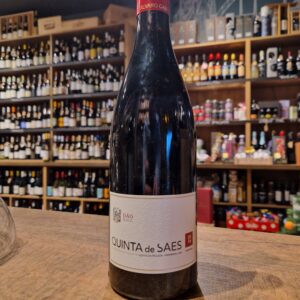 Dão is quickly becoming the most sought-after region for Portuguese winemakers to venture into; according to many, it’s one of the world’s most perfect microclimates: mountains protect it from continental heat to the east and Douro’s heat to north, and cool Atlantic breezes come inland to keep the overall temperatures more regulated, making for wines with bright acidity, ethereal aromatics, and compelling complexity. The DO’s granitic soils allow indigenous grapes to shine through in the wines, and provide firm, crunchy tannin against the bright fruit. Alvaro Castro has noted that “if God were to design a wine-growing region, what he would come up with would look a lot like the Dão.” There is no modern Dão without one of the region’s longtime legends, Alvaro Castro, whose estate encompasses two small properties (or “quintas”) known as Pellada and Saes. Alvaro makes wine here with his daughter Maria, carrying on a tradition of winemaking on this property that dates to the 16th century! Together, they have resisted the internationalization push of the ‘80s and ‘90s, instead doubling down on their slow-wine approach, using local varieties grown and crafted in the true Dāo “field blend” style. The Dão is home to the finest plantings of Touriga Naçional in Portugal. The microclimate that protects it from the extreme heat of the eastern winds and the overly wet conditions to the north and west provides a cool, temperate setting for Touriga to showcase its hallmark rose petal aromatics and soft fruit. Aged in neutral oak, this is a pure, unadulterated expression of Dão Touriga. Average age of 15 years. Tended in granite and clay soil at 550m (1811ft) elevation. Pair with roast pork, lighter game like rabbit and quail, and mushroom dishes.
Dão is quickly becoming the most sought-after region for Portuguese winemakers to venture into; according to many, it’s one of the world’s most perfect microclimates: mountains protect it from continental heat to the east and Douro’s heat to north, and cool Atlantic breezes come inland to keep the overall temperatures more regulated, making for wines with bright acidity, ethereal aromatics, and compelling complexity. The DO’s granitic soils allow indigenous grapes to shine through in the wines, and provide firm, crunchy tannin against the bright fruit. Alvaro Castro has noted that “if God were to design a wine-growing region, what he would come up with would look a lot like the Dão.” There is no modern Dão without one of the region’s longtime legends, Alvaro Castro, whose estate encompasses two small properties (or “quintas”) known as Pellada and Saes. Alvaro makes wine here with his daughter Maria, carrying on a tradition of winemaking on this property that dates to the 16th century! Together, they have resisted the internationalization push of the ‘80s and ‘90s, instead doubling down on their slow-wine approach, using local varieties grown and crafted in the true Dāo “field blend” style. The Dão is home to the finest plantings of Touriga Naçional in Portugal. The microclimate that protects it from the extreme heat of the eastern winds and the overly wet conditions to the north and west provides a cool, temperate setting for Touriga to showcase its hallmark rose petal aromatics and soft fruit. Aged in neutral oak, this is a pure, unadulterated expression of Dão Touriga. Average age of 15 years. Tended in granite and clay soil at 550m (1811ft) elevation. Pair with roast pork, lighter game like rabbit and quail, and mushroom dishes. -
Out of stock
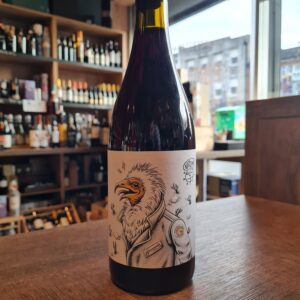 Ricardo Alves and Frederico Machado visited Bemposta for the first time together in 2017. They were on the Portuguese back roads in the Parque Natural das Arribas do Douro, with its wealth of ancient, indigenous and largely forgotten grapevines chaotically perched on the extreme slopes on the Douro river gorge, when they came upon the perfect location for their life project, the place to which they would commit their youth. They set out to rediscover and revitalize an ancient wine culture whose local home winegrowers have just barely kept the faint bloodline of their vinous history from extinction. Trás-os-Montes is a large, but not too well known, wine region of north eastern Portugal (Translation: behind the Mountains), is where the Arribas Wine Company are based and both are very passionate have been making some very interesting wines. Saroto Tinto is made from a small, old parcel of vines comprised of old-fashioned red and white Douro varieties. The resultant wine is full of wild forest fruit, lots of berries with a kick of natural sourness. Plenty of fresh acidity adds juiciness and balances the rustic, grippy tannins, making for quite a light red. Earthy minerality adds extra complexity and the finish is long and moreish. Its bottled unfined and unfiltered so may have natural sediment in the bottle.
Ricardo Alves and Frederico Machado visited Bemposta for the first time together in 2017. They were on the Portuguese back roads in the Parque Natural das Arribas do Douro, with its wealth of ancient, indigenous and largely forgotten grapevines chaotically perched on the extreme slopes on the Douro river gorge, when they came upon the perfect location for their life project, the place to which they would commit their youth. They set out to rediscover and revitalize an ancient wine culture whose local home winegrowers have just barely kept the faint bloodline of their vinous history from extinction. Trás-os-Montes is a large, but not too well known, wine region of north eastern Portugal (Translation: behind the Mountains), is where the Arribas Wine Company are based and both are very passionate have been making some very interesting wines. Saroto Tinto is made from a small, old parcel of vines comprised of old-fashioned red and white Douro varieties. The resultant wine is full of wild forest fruit, lots of berries with a kick of natural sourness. Plenty of fresh acidity adds juiciness and balances the rustic, grippy tannins, making for quite a light red. Earthy minerality adds extra complexity and the finish is long and moreish. Its bottled unfined and unfiltered so may have natural sediment in the bottle.


